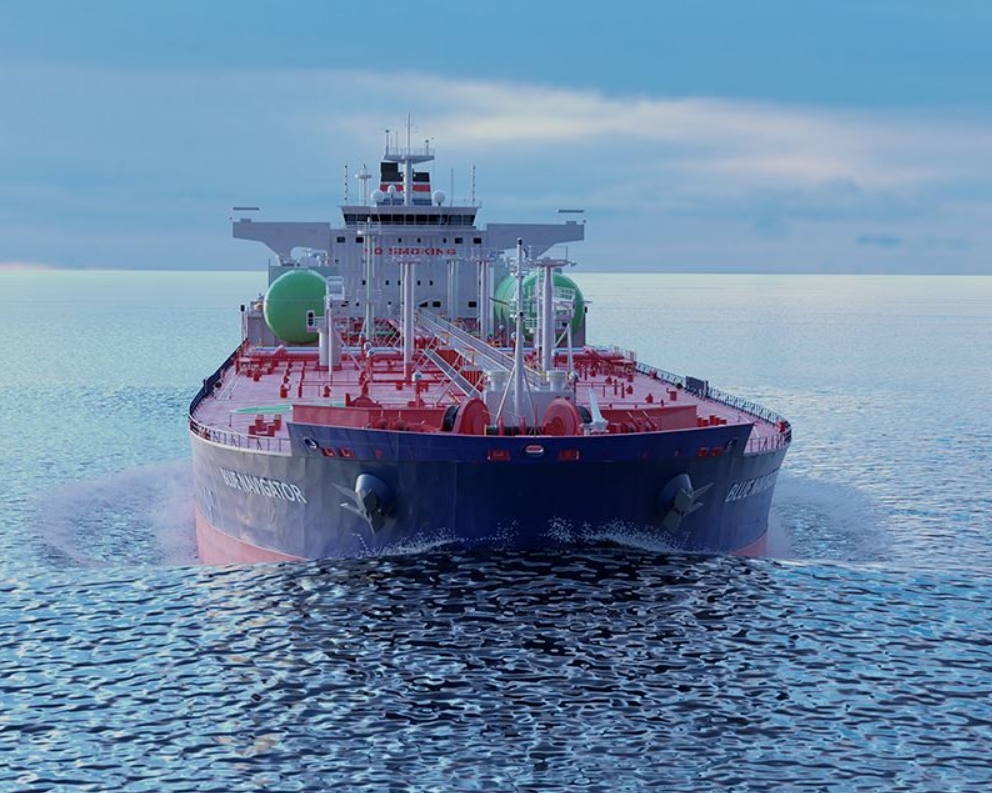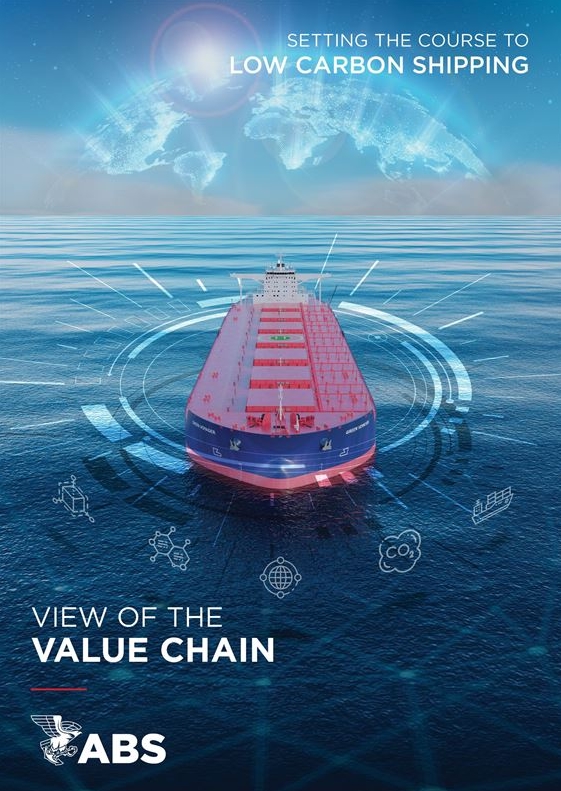In its latest support for the marine and offshore industry’s decarbonization drive, ABS has published a detailed life-cycle, or value-chain, analysis of the greenhouse gas (GHG) footprint of the leading alternative marine fuels.

The first-of-its-kind analysis is the heart of the third edition of the ABS Low Carbon Shipping Outlook series, where ABS also updates on the marine sector’s progress on reducing emissions and showcases potential designs for future vessels, including their prospective technical and economic data.
In a pioneering piece of research, ABS collaborated with Herbert Engineering to explore the feasibility of transitioning from three conventional vessel designs to low carbon variants. The research identified differing degrees of difficulty, depending on a range of factors including maturity of technology and required degree investment.
“Shipowners need to be conscious of using the lessons from the transition to decarbonization to build a cycle of continuous process improvement. They can do this by understanding the impact of decarbonization on all aspects of their business and using that information to power the cycle. ABS is committed to supporting them in this and is innovating with new techniques and products to deliver unprecedented levels of insight into the sustainability profile of their fleets and the wider impact of their decarbonization strategy. This latest Outlook comprehensively underscores how we continue to lead the industry in this area,” said Christopher J. Wiernicki, ABS Chairman, President and Chief Executive Officer.
Setting the Course to Low Carbon Shipping - View of the Value Chain is the third in a series of outlook documents published by ABS to showcase the latest decarbonization research and thinking. The first in the series, 2030 Outlook — 2050 Vision, examined the International Maritime Organization mandated emissions goals and the varying levels of carbon impact from available marine fuels and other energy sources as shipowners strive to meet those goals. The second in the series, Pathways to Sustainable Shipping, examined the current energy-commodity and consumer trends, and how they could influence the size of the global fleet, its trading patterns and, therefore, its emissions output.
Richard Gilmore, Executive Vice President, Maran Gas Maritime Inc, described the ABS outlook as a “must read for all shipping executives”.
“The third Sustainability Outlook from ABS conforms to the standards set by its two predecessors in being a well-researched and presented document. While no one has a crystal ball to predict the future, it is extremely useful to have this report which helps to summarize the current state of thinking and experience in the area of carbon emission reduction. This topic will continue to be of pressing importance for all aspects of shipping for years to come and these reports help organize the growing body of information in this fast evolving field. It is a 'must read' for all shipping executives,” he said.
Bo Cerup-Simonsen, CEO, Mærsk Mc-Kinney Møller Center for Zero Carbon Shipping, said: “The ABS Outlook is a valuable contribution as it is now of essence to urgently concretise the future pathways, demonstrating what the future will look like and identifying risks and further development needs. We look forward to further progressing the pathways and solutions through our partnership in the Mærsk Mc-Kinney Møller Center for Zero Carbon Shipping."
While the industry focus has been on reducing shipping’s carbon footprint, pressure is growing for every link in maritime trade’s value chain to follow suit, including supporting land-side infrastructure. ABS worked with the Rocky Mountain Institute to ensure that View of the Value Chain looks at both. ABS and Herbert Engineering examined the potential technical requirements and operational trade-offs that may be necessary in future versions or conversions to low carbon operations of three existing ship types: a Chinamax Bulk Carrier, an Aframax Tanker and a Feeder Containership. The report also explores the innovative carbon-reduction practices presently being deployed at ports and other land-side value chain elements as the sector transitions towards a more sustainable business model.
“View of the Value Chain is a response to how shipowners’ strategic industry partners are encouraging them to intensify their focus on the entire value chain, not just the combustion cycle, when deciding which measures to take to reduce their collective carbon footprint. Meanwhile financiers and charterers increasingly appear poised to set the requirements for the environmental performance of vessels in connection with the financing of new ships and new chartering agreements,” said Georgios Plevrakis, ABS Director, Global Sustainability. “Reducing the output of carbon emissions will play a key role in shaping the future of the business and how environmental and financial performances are assessed, from individual shipping assets, to fleets and finally to the entire value chain that supports them.”

Source: ABS